Standard sizes for teenage beds
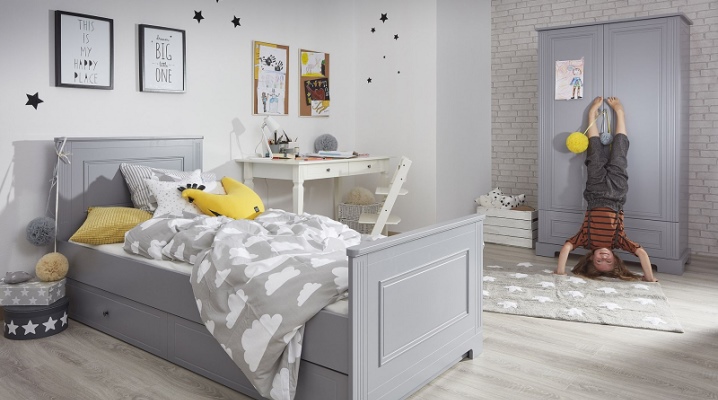
A child in the process of growing up becomes almost an independent person. He needs a separate room and also needs a comfortable and cozy place to sleep. You should choose a bed according to the size of your child, so that during rest, his body is formed correctly.
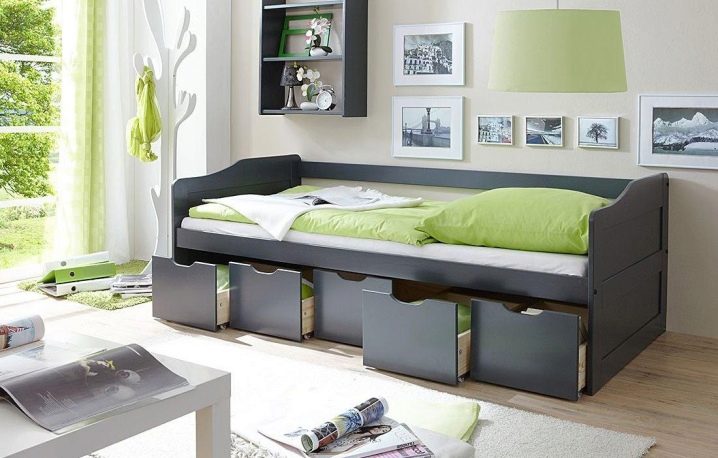
Sizes of a teenage bed
Children of all ages spend about 10 hours a day in bed, so size must be taken into account when choosing a place to sleep. Basically, the standard for a teenage bed is 180x90 cm. Since your child has already grown up and has his own opinion, you should listen to his preferences.
Consider the main parameters for choosing a teenage bed.
- Compliance with the child's height. The size of the berth should be 20 centimeters larger than the body length.
- Correct prosthetic base.
- Durability - the bed must be able to withstand a lot of stress.
- Interesting design, suitable for age and hobbies.
- Safe materials, natural wood is best.
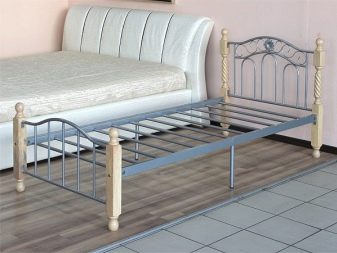
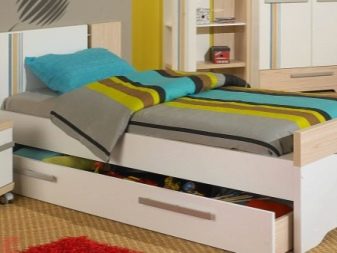
Modern manufacturers will surprise you with the most exquisite designs. There are beds with various decorative inserts, with built-in drawers. Today, even the most demanding consumer will always find a suitable option.
Parents usually do not consider it necessary to buy standard beds, which are produced in the size of 170x80 cm, because the teenager is growing rapidly. Most often, products with a size of 200x90 cm are purchased, such models last for a long time, and even an adult can sleep on them.
When choosing a place to sleep for a child over 11 years old, several requirements should be considered. The material from which the furniture is made must be environmentally friendly and not contain harmful substances. We also recommend that you pay attention to the fact that there are no sharp corners. Even at the age of 14, a child can be injured by getting out of bed half asleep at night.
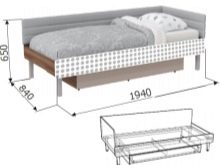
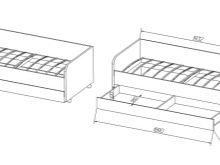
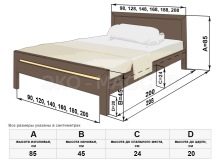
It is possible to purchase a bed that is also suitable for an adult. Standard lengths are 190 cm. There is a wide selection of versatile sofas on the market that will look good in the interior of a child's room.
If your child is taller than 180 cm, then you can make such a bed to order. The width of the furniture does not matter, it may not be very large - about 80 cm.It is also possible to find on sale exceptions, where the width will be up to 125 cm.
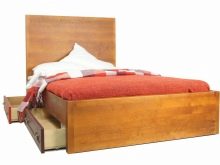
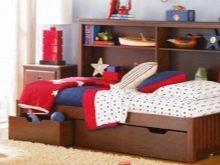
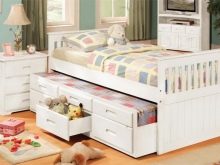
Varieties
Your children will also need functional additions as they grow up. For example, drawers where you can hide bed linen, interesting books and other important little things. Standard boxes are made in the size of 40x70 cm. But it is possible to order those that will fit the size of your bed model.
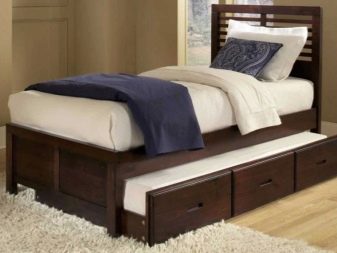
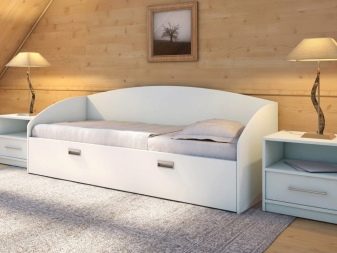
There are families with more than one child and they are entering adolescence. The best purchase option for a family is a bunk bed. When buying this option, you can significantly save on space in the nursery, while increasing the space for classes and games. Such models are absolutely safe for children.
To climb to the second floor, the child will need to climb a specially attached ladder. Such ladders can be in the form of drawers or conventional, hinged. The beds themselves come in different sizes, it all depends on the shape, the number of shelves and built-in drawers. There are also models with built-in tables, desks, at which children can do their homework.
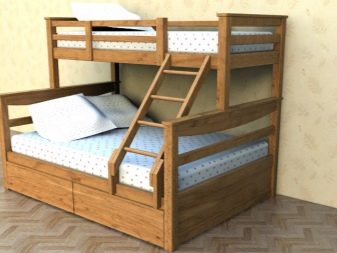
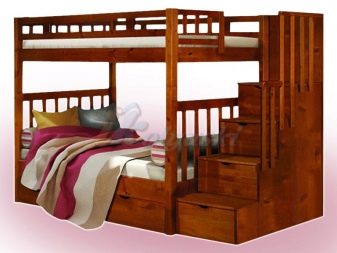
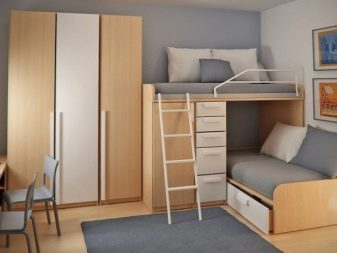
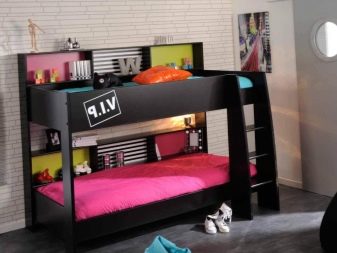
Determination of the height of the upper berth occurs due to the height above the head of the child, who will be below. Everyone should be comfortable. The standard height is considered to be up to 1.8 m. However, one should not forget about the size of the ceilings in the children's room, so that such a bed fits. Most often, such sleeping places are 200x90 cm in size.
There are also some cases when bunk beds are made from one berth. On the ground floor there is an opportunity to place a table, lockers or a buffet.
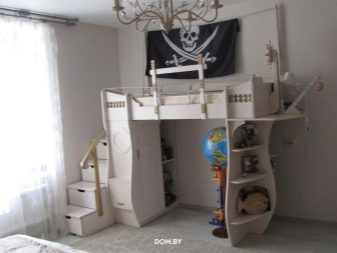
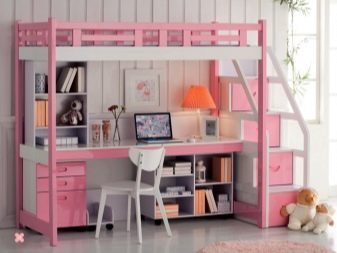
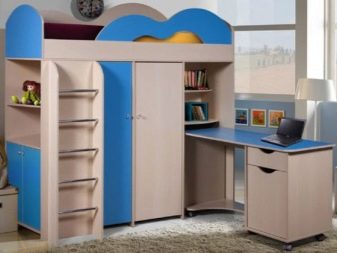
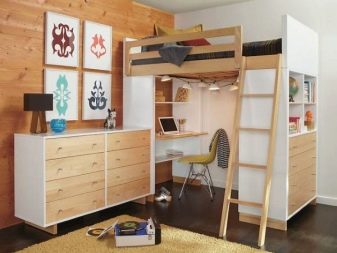
There are also sliding bed models. This option is ideal for parents who do not want to buy new furniture for their children every 3 years. There are products in the shape of a circle, their design allows you to increase the length up to 210 cm.The width does not change, and is 70 cm.
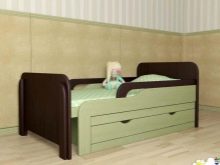
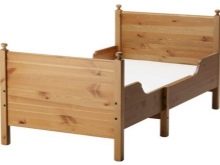
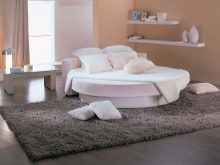
Subtleties of choice
If you want the furniture to serve you for many years, you should take into account not only the size of the bed, but also choose the right mattress and type of base. Your child's healthy sleep depends precisely on the base of the bed (anchorage at the frame, which is the support for the mattress).
There are several types of grounds:
- solid;
- rack and pinion;
- orthopedic (made of lamellas).
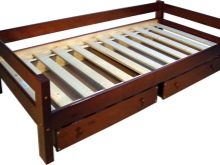
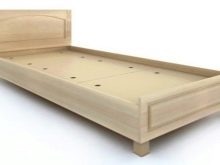
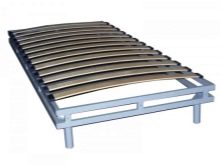
A solid base is one that is made of solid wood or plywood.
If the mattress lies on such a structure, then this leads to rapid deformation in those places where the child often sleeps. Also, this design is not entirely hygienic, teenagers sweat during sleep, and solid wood does not allow moisture to drain away.
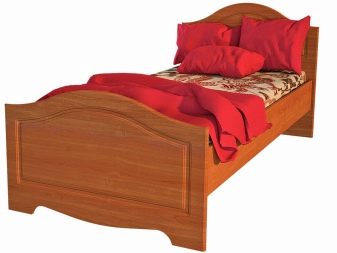
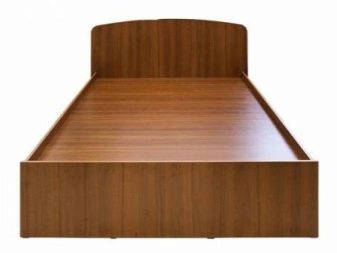
The rack-and-pinion design includes a frame and slats that form a grid. For manufacturing, plastic, wood or metal are used.
If the bars are made of plastic, then they are considered more reliable and durable, however, sufficient air permeability is not ensured. But wooden or metal structures are the most hygienic, however, they will not last long, because the slats sag and break over time.
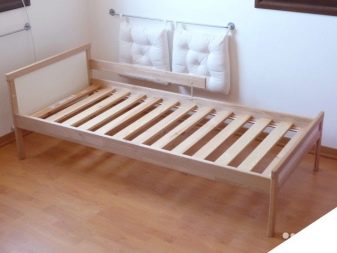
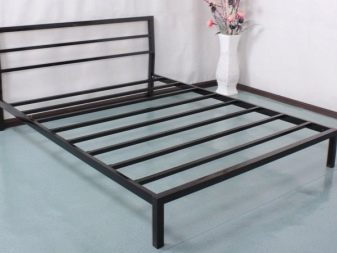
The most suitable type of bases is orthopedic. The structure is made of birch or beech wood. Special slats (lamellas) are made so that they bend evenly and at the same time completely repeat the bend of the spine.
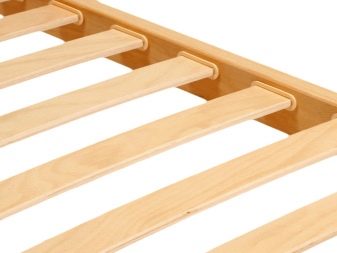
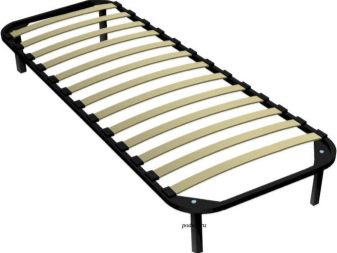
Choosing a mattress for a teenage bed is just as important as other criteria. The correct position of the spine during sleep is the key to health and emotional stability. From the age of 11, the spine is almost fully formed, so it is important not to bend it.
A mattress is required to choose medium firmness.
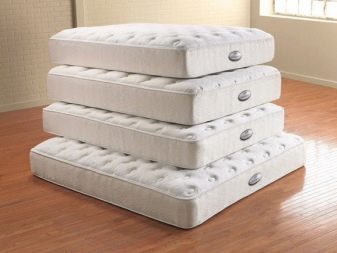
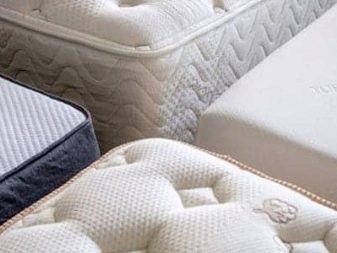
For standard bed sizes, see the following video.













The comment was sent successfully.